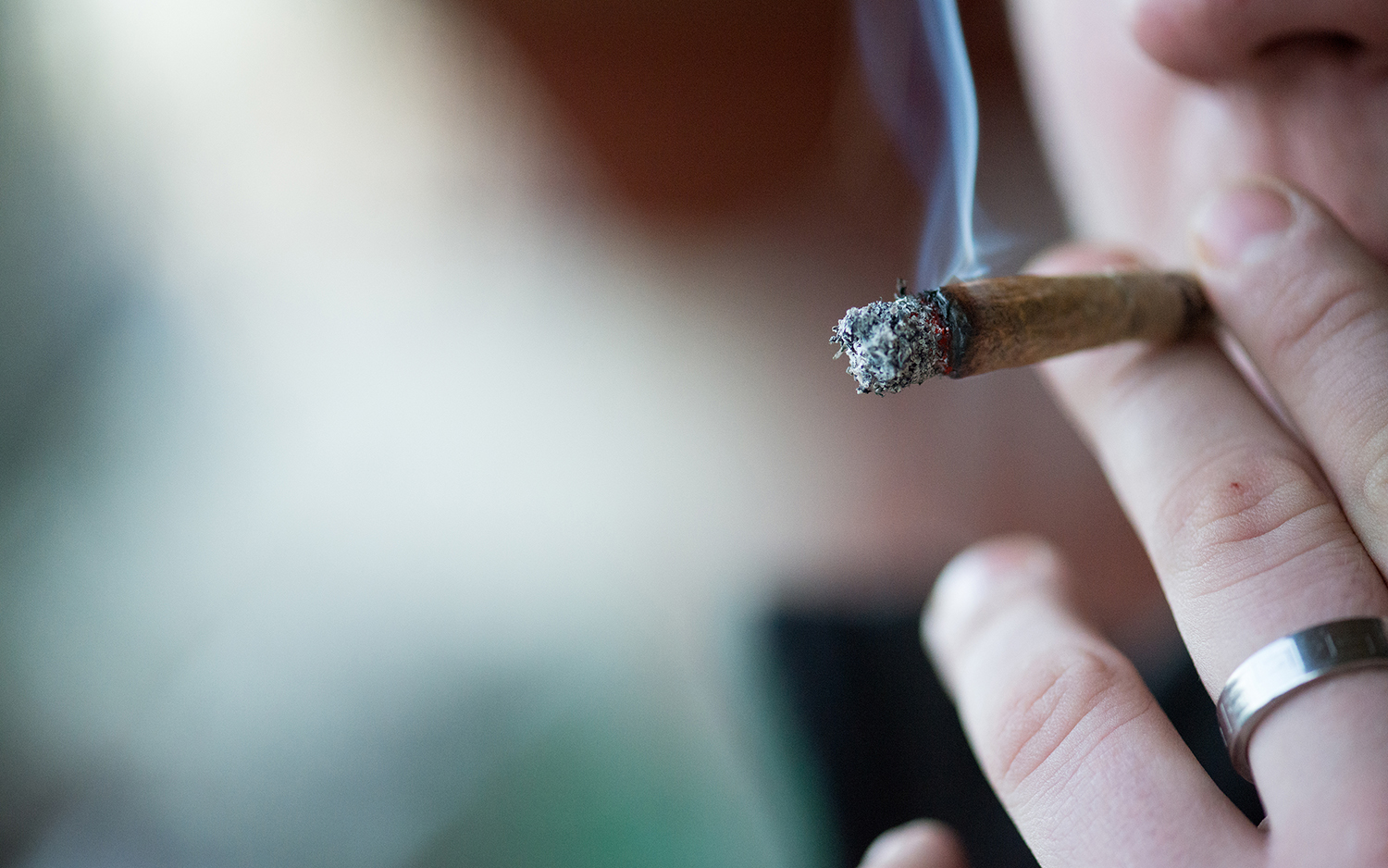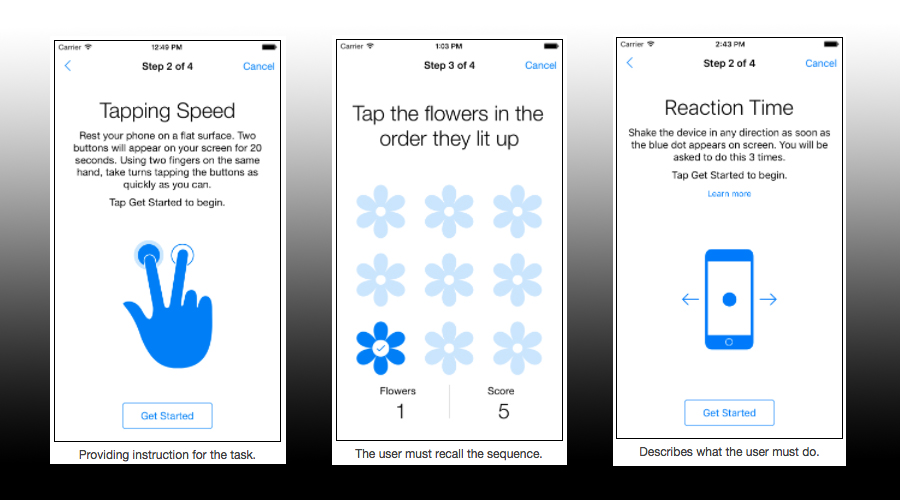Barely Buzzed or Super Stoned? An App Could One Day Reveal How High You Are

Get the world’s most fascinating discoveries delivered straight to your inbox.
You are now subscribed
Your newsletter sign-up was successful
Want to add more newsletters?

Delivered Daily
Daily Newsletter
Sign up for the latest discoveries, groundbreaking research and fascinating breakthroughs that impact you and the wider world direct to your inbox.

Once a week
Life's Little Mysteries
Feed your curiosity with an exclusive mystery every week, solved with science and delivered direct to your inbox before it's seen anywhere else.

Once a week
How It Works
Sign up to our free science & technology newsletter for your weekly fix of fascinating articles, quick quizzes, amazing images, and more

Delivered daily
Space.com Newsletter
Breaking space news, the latest updates on rocket launches, skywatching events and more!

Once a month
Watch This Space
Sign up to our monthly entertainment newsletter to keep up with all our coverage of the latest sci-fi and space movies, tv shows, games and books.

Once a week
Night Sky This Week
Discover this week's must-see night sky events, moon phases, and stunning astrophotos. Sign up for our skywatching newsletter and explore the universe with us!
Join the club
Get full access to premium articles, exclusive features and a growing list of member rewards.
How stoned are you, really?
That's the question researchers challenged marijuana users to answer in a prototype app called "Am I Stoned?" in which they completed a series of tasks evaluating their memory, cognitive speed, reaction time and fine-motor skills.
The prototype could in time make users more aware of the effects of THC (tetrahydrocannabinol), the compound in marijuana responsible for its psychoactive effects, the researchers said. This, in turn, may help them make safer choices about performing activities that may be difficult or dangerous to do while high, research team leader Harriet de Wit, a professor in the Department of Psychiatry and Behavioral Neuroscience at The University of Chicago, said in a statement.
The scientists presented their findings today (April 24) at the annual Experimental Biology conference; the results have not yet been published in a peer-reviewed journal. [25 Odd Facts About Marijuana]
High times
When a person uses marijuana, THC interacts with the brain, stimulating dopamine production and creating a sense of euphoria. It also binds to cannabinoid receptors in brain regions associated with coordination, memory, cognition and time perception, and has been found to temporarily inhibit performance in these areas — though how much it does this depends on the individual and the amount and concentration of the THC consumed.
To test the app, the scientists asked 24 people who didn't use marijuana daily to perform the app's tasks on iPhones and desktop computers after consuming either a pill containing THC or a placebo. Activities on the iPhone interface included a test of screen-tapping speed, a memory game of tapping flower images in the correct order, and a test that required shaking the phone in response to a blue dot appearing on the screen, to evaluate reaction time.
On the desktop, similar tasks addressed cognitive processing speed task, reaction time, fine motor coordination and working memory span, project researcher Elisa Pabon, a doctoral candidate at the Pritzker School of Medicine at The University of Chicago, told Live Science in an email.
Get the world’s most fascinating discoveries delivered straight to your inbox.
The researchers found that the desktop interfaces could detect impairment successfully using three of the four tasks, while iPhone apps could do so with only one of the tasks. This is perhaps because the computer activities, which took 15 to 20 minutes to finish, offered more chances to observe how THC was affecting the user, Pabon said in the statement.
"The effects of THC on performance may be subtle, so we need highly sensitive tasks to detect impairments," Pabon said.
Proceed with caution
One drawback to a self-administered test such as this, however, is that if someone becomes good at performing the tasks through repetition and practice, the results won't accurately reflect how impaired they are, said Vaughan Rees, a lecturer on social and behavioral sciences at the Harvard T.H. Chan School of Public Health.
Rees, who was not involved in the app's development, also noted that vigilance and judgment planning — functions that could also be affected by THC — did not appear to be evaluated by the app, so its results could paint an incomplete picture of an individual's impairment.
At this stage, there is much more data that still needs to be gathered before the app can reliably test people for THC impairment, Pabon said. For example, it's important that the app factor in how a person performed on the tests when sober, and how repetition and practice impact the results, she said. What's more, the app may not be able to distinguish between different doses of THC, or if the user is under the influence of other substances as well.
Nevertheless, the app could eventually prove useful as a tool for improving users' awareness and understanding of their own impairment, which could be helpful as legal marijuana becomes more accepted and widespread in the U.S., Rees told Live Science.
"Clearly, it's a step toward helping us to mitigate some of the potential consequences of the wider uptick of marijuana use in communities where it's becoming legalized or decriminalized," Rees said.
The next steps for the app will include fine-tuning the tasks to make them even more sensitive to detecting THC impairment, and further research could help to pinpoint circumstances in which users may not be aware of how impaired they are, the researchers reported. In a second-phase study currently underway, the scientists are evaluating an optimized version of the app with tasks that take longer to complete and are more complex than in the prototype, Pabon said.
Original article on Live Science.

Mindy Weisberger is a science journalist and author of "Rise of the Zombie Bugs: The Surprising Science of Parasitic Mind-Control" (Hopkins Press). She formerly edited for Scholastic and was a channel editor and senior writer for Live Science. She has reported on general science, covering climate change, paleontology, biology and space. Mindy studied film at Columbia University; prior to LS, she produced, wrote and directed media for the American Museum of Natural History in NYC. Her videos about dinosaurs, astrophysics, biodiversity and evolution appear in museums and science centers worldwide, earning awards such as the CINE Golden Eagle and the Communicator Award of Excellence. Her writing has also appeared in Scientific American, The Washington Post, How It Works Magazine and CNN.
 Live Science Plus
Live Science Plus







